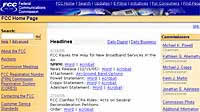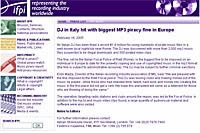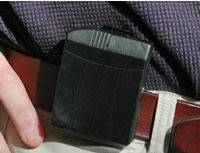 In a synergistic embrace, BSkyB and Barclaycard have signed an agreement which will see them join forces to launch a Sky-branded credit card later this year.
In a synergistic embrace, BSkyB and Barclaycard have signed an agreement which will see them join forces to launch a Sky-branded credit card later this year.
The SkyCard will work just like any other credit card but offers the advantage of being fully integrated with Sky’s interactive television services.
We see this is a smart move with Sky inserting themselves between the customer and any content or goods that could be offered to them in the future
Customers can insert their SkyCard in their Sky box to manage their account securely and, soon after launch, to make purchases through the television using their remote control.
This looks like a lucrative opportunity for BSkyB to exploit the unique loyalty and interactive features of the SkyCard to its growing base of more than seven million direct-to-home customers across the UK.
Naturally, there’ll be inducements to get people using the card, with SkyCard cardholders earning SkyPoints with eligible purchases.
These points will offer exclusive savings on Sky entertainment including, for example, the cost of a monthly Sky digital subscription.
Here’s the back-slapping PR schmooze from Jon Florsheim, BSkyB’s Managing Director, Sales, Marketing and Interactive:
“SkyCard will build on the value delivered to customers, enabling them to save money through the loyalty scheme and to get more out of their Sky digital subscription..”
For BSkyB and Barclaycard, this looks to be a winning partnership and maybe one that the customers will enjoy too.
After all, the prospect of being able to buy stuff through your Sky box and earning loyalty points towards the cost of subscription services in the process may prove tempting.
And with Sky no doubt skimming a percentage off any e-commerce/t-commerce sales, there should be smiles all around.
One fly in this interactive ointment may be the trust factor: would you trust Sky as your credit card company?
 A US appeals panel has challenged new federal rules which require certain video devices to incorporate technology designed to prevent copying digital television programs and distributing them over the Internet.
A US appeals panel has challenged new federal rules which require certain video devices to incorporate technology designed to prevent copying digital television programs and distributing them over the Internet. Russian prosecutors are considering filing criminal charges against a Web site that offers cheap music downloads, the music industry’s global trade group has said.
Russian prosecutors are considering filing criminal charges against a Web site that offers cheap music downloads, the music industry’s global trade group has said. Video Networks Ltd (VNL) has announced a range of enhancements to the TV functionality of its HomeChoice service, claimed to improve the overall customer experience.
Video Networks Ltd (VNL) has announced a range of enhancements to the TV functionality of its HomeChoice service, claimed to improve the overall customer experience. A 19-year-burglar is now enjoying an eleven month stretch at Her Majesty’s Pleasure after he was photographed burgling a house by the owner’s Webcam.
A 19-year-burglar is now enjoying an eleven month stretch at Her Majesty’s Pleasure after he was photographed burgling a house by the owner’s Webcam. A “well known” Italian DJ could be hit with a record-breaking fine of up to 1.4 million euros ($1.8 million, £968,000) for using thousands of pirate music files in a nightclub near Rome, police said on Wednesday.
A “well known” Italian DJ could be hit with a record-breaking fine of up to 1.4 million euros ($1.8 million, £968,000) for using thousands of pirate music files in a nightclub near Rome, police said on Wednesday. In their 2005 “State of the Company” address just made public,
In their 2005 “State of the Company” address just made public,  PacketVideo specialises in building and ‘commercializing’ (we think that’s American for “selling”) multimedia capabilities such as VOD, music on demand (MOD) and two-way video communication and messaging.
PacketVideo specialises in building and ‘commercializing’ (we think that’s American for “selling”) multimedia capabilities such as VOD, music on demand (MOD) and two-way video communication and messaging. Arbitron Portable People Meter and Eurisko Media Monitor selected for further field testing
Arbitron Portable People Meter and Eurisko Media Monitor selected for further field testing  To make the test as thorough as possible, hundreds of unique listening environments were generated, with RAJAR specifying several criteria which the audiometers should fulfil – these included the ability to identify all formats equally, whether music or speech, against a variety of extraneous background noises, when played at differing volume levels and regardless of whether the wearers were stationary or in motion.
To make the test as thorough as possible, hundreds of unique listening environments were generated, with RAJAR specifying several criteria which the audiometers should fulfil – these included the ability to identify all formats equally, whether music or speech, against a variety of extraneous background noises, when played at differing volume levels and regardless of whether the wearers were stationary or in motion. In a litigious pincer movement,
In a litigious pincer movement,  Despite surviving last year’s pre-Christmas BitTorrent blitz, the LokiTorrent site was finally closed down by a Dallas court yesterday.
Despite surviving last year’s pre-Christmas BitTorrent blitz, the LokiTorrent site was finally closed down by a Dallas court yesterday.